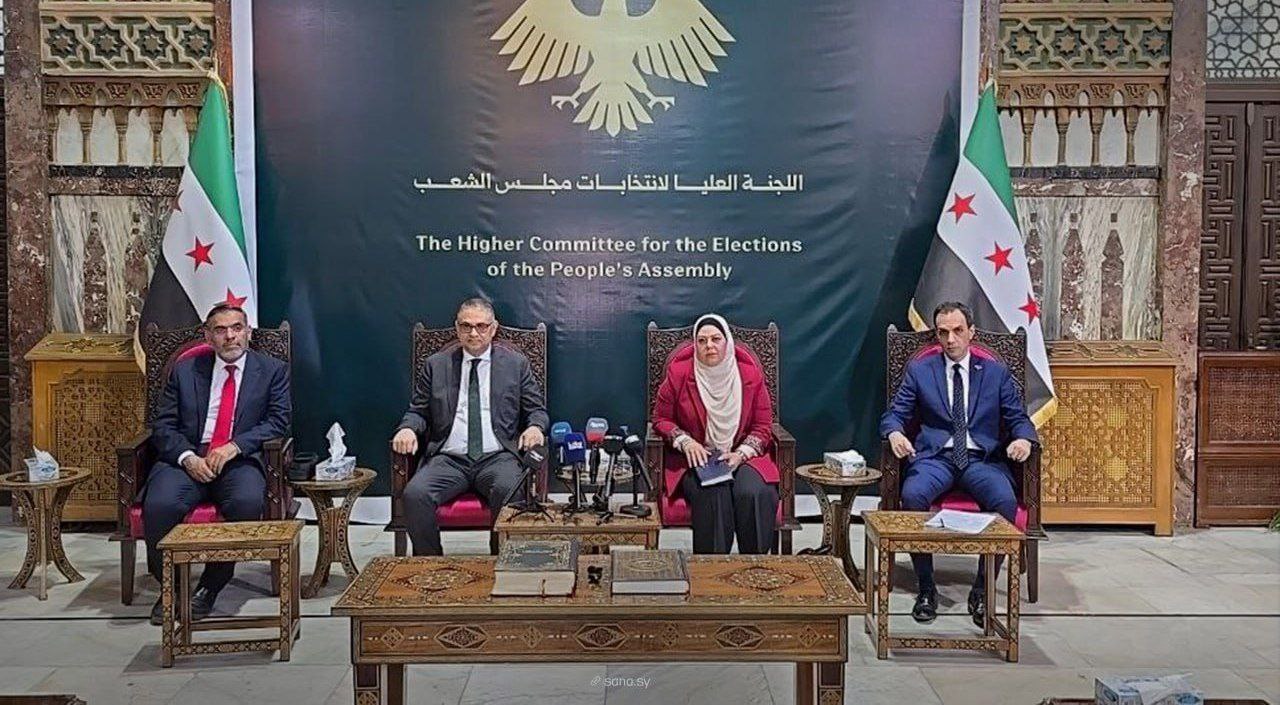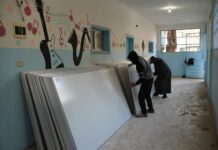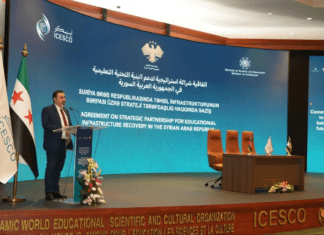
Syria’s Supreme Committee for People’s Assembly Elections announced the parliamentary vote will be held Oct. 5, following a delay prompted by procedural backlogs and rising public engagement.
The decision, issued in Resolution No. 44 of 2025, confirmed elections will take place across designated governorates. September 20, the committee extended the deadline for appeals against electoral body nominations until the afternoon of the September 21 to allow for broader public oversight, according to spokesperson Nawar Najma.
Why the Elections Were Postponed
Officials said the earlier September date was pushed back because subcommittees were overwhelmed by applications. “The growing desire of Syrians to participate caused significant pressure on the subcommittees, preventing them from reviewing all applications on time,” Tariq al-Kurdi of the committee’s legal team told Syria TV.
Voting will determine 210 seats in the People’s Assembly. Imad Abu Ubay, speaking to Levant 24, said 200 of those seats will be distributed between the electoral commission and the president, with 140 chosen by the commission and 70 by presidential appointment. He added that subcommittees—each made up of at least three members and adjusted by population size—will oversee the process under 17 community-based conditions.
“Once the council meets, it exercises its role as a legislative council and legislative authority,” Abu Ubay said. He noted that balloting will be broadcast live, using a model approved by the assembly.
Special Cases in Suwayda, Hasaka and Raqqa
While SANA reported elections would cover all districts, officials clarified that special arrangements remain in place for Suwayda and Hasaka, where security conditions have delayed direct voting. Abu Ubay said indirect elections are planned for those areas once conditions allow. He added that districts in state-controlled parts of Hasaka, including Ras al-Ain, as well as a Raqqa-based student electoral body, are moving ahead with subcommittee formation.
Consensus Experiment in Deir Ezzor
In Deir Ezzor’s Mayadeen, electoral body members reached consensus on a single candidate, dentist Marwan al-Nazhan, after weeks of consultations. Lawyer Muhammad al-Rawi, who withdrew his candidacy, said the decision was made “to ensure the next candidate is a true representative of the city’s voice and concerns.”
Residents welcomed the move, saying it could unify their demands for better services and quality of life. Political researcher Muhammad al-Yusuf described it as a transitional step toward building trust between citizens and institutions.
Assembly’s Role in Syria’s Transition
The next People’s Assembly will guide Syria’s fragile transition following the ousting of the Assad regime last December. Lawmakers will oversee economic reforms, ratify new treaties and navigate the balance between Islamic law’s role, women’s rights and free expression under a constitutional declaration issued in March. As the Oct. 5 vote approaches, officials face the challenge of maintaining security, ensuring inclusivity and proving that broader participation can shape Syria’s political future.








